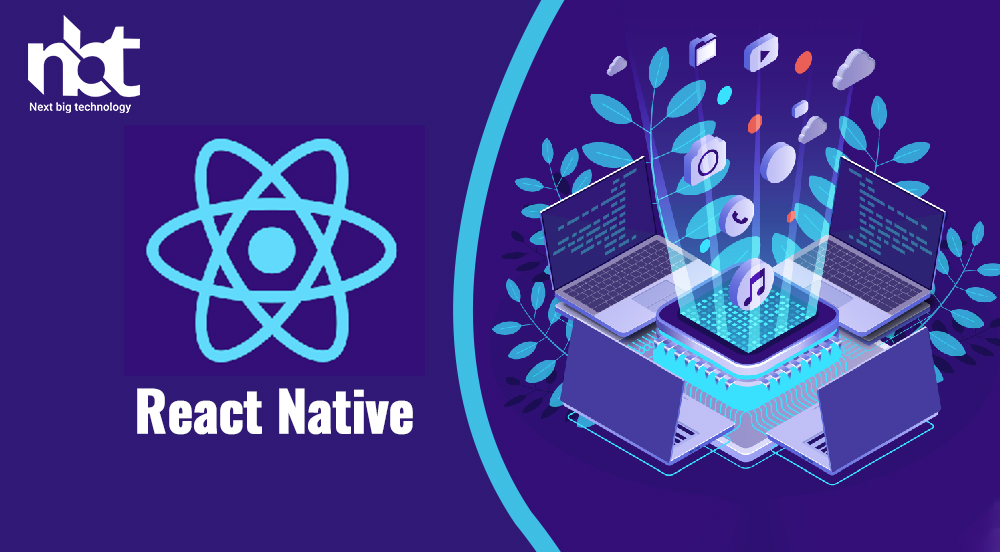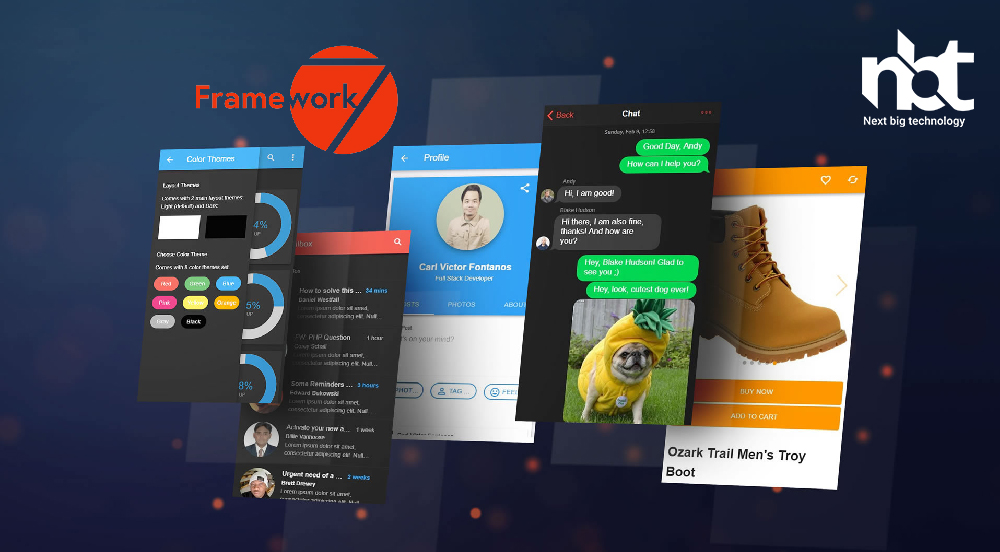In today’s mobile-driven world, businesses and developers are constantly seeking efficient ways to build high-quality mobile applications. JavaScript frameworks have emerged as powerful tools that streamline the mobile app development process, enabling developers to create feature-rich and responsive apps for multiple platforms. In this blog post, we’ll explore the top 10 JavaScript frameworks for mobile app development in 2023, highlighting their key features, benefits, and use cases.
Table of Contents
React Native
React Native is a popular JavaScript framework developed by Facebook. It allows developers to build native-like mobile apps using a single codebase. With React Native, developers can leverage reusable components, hot reloading, and a declarative syntax to create high-performance mobile apps for both iOS and Android platforms.
Key Features
- Native-like performance and look-and-feel.
- Hot reloading for faster development iterations.
- Extensive component library and strong community support.
- Code reusability across different platforms.
- Simplified UI development using JSX (JavaScript XML).
Use Cases: React Native is widely used for developing social media apps, e-commerce platforms, and mobile applications that require a native-like experience and performance.
Ionic
Ionic is an open-source framework for building hybrid mobile apps using HTML, CSS, and JavaScript. It leverages web technologies to create cross-platform mobile apps that run seamlessly on iOS, Android, and the web. Ionic offers a rich set of UI components, plugins, and tools to simplify the development process.
Key Features
- Large collection of pre-built UI components and themes.
- Cross-platform compatibility with a single codebase.
- Access to native device features using Cordova plugins.
- Live reloading for efficient development iterations.
- Integration with Angular, React, and Vue.js frameworks.
Use Cases: Ionic is ideal for developing hybrid mobile apps, including social media platforms, e-commerce apps, and productivity tools.
Flutter
Although not strictly a JavaScript framework, Flutter is a popular open-source framework developed by Google for building native-like mobile apps using the Dart programming language. Flutter uses a reactive UI framework, enabling developers to create visually appealing and high-performance mobile applications for iOS, Android, and the web.
Key Features
- Fast and responsive UI rendering with the Flutter engine.
- Hot reloading for quick development iterations.
- Rich set of customizable UI widgets.
- Single codebase for multiple platforms.
- Access to native device features and APIs.
Use Cases: Flutter is well-suited for developing visually appealing and highly interactive mobile apps, including e-commerce platforms, multimedia apps, and games.
PhoneGap
PhoneGap, now known as Apache Cordova, is a popular open-source framework that allows developers to create cross-platform mobile apps using HTML, CSS, and JavaScript. PhoneGap wraps the app’s code with a native shell, providing access to native device features and APIs.
Key Features
- Wide device compatibility across multiple platforms.
- Access to native device features using plugins.
- Simplified development using web technologies.
- Large community and plugin ecosystem.
- Easy integration with existing web assets.
Use Cases: PhoneGap is suitable for developing hybrid mobile apps that require access to native device features, such as camera, geolocation, and push notifications.
Framework7
Framework7 is a full-featured JavaScript framework for building mobile apps with a native look and feel. It offers a rich set of UI components and an easy-to-use API, making it ideal for developing visually appealing and highly interactive mobile applications.
Key Features
- Large collection of pre-built UI components and themes.
- Smooth and responsive animations and transitions.
- Built-in routing and navigation system.
- Supports both iOS and Android platforms.
- Integration with popular JavaScript frameworks like Vue.js and React.
Use Cases: Framework 7 is well-suited for developing mobile apps that require a native-like user interface and interactive elements, such as e-commerce apps, social media platforms, and media-rich applications.
NativeScript
NativeScript is an open-source framework for building cross-platform native mobile apps using JavaScript, TypeScript, or Angular. It allows developers to build high-performance apps with direct access to native APIs and UI components.
Key Features
- Native UI and performance for iOS and Android platforms.
- Access to native APIs and device features.
- Code sharing across web, iOS, and Android projects.
- Integration with popular JavaScript frameworks like Angular and Vue.js.
- Extensive plugin ecosystem for added functionality.
Use Cases: NativeScript is suitable for developing performance-critical mobile apps that require deep integration with native APIs, such as enterprise applications, productivity tools, and data-driven apps.
Onsen UI
Onsen UI is an open-source HTML5-based framework for building mobile apps with a native look and feel. It provides a rich collection of customizable UI components and a powerful JavaScript API to create cross-platform mobile apps.
Key Features
- Extensive collection of UI components and themes.
- Cross-platform compatibility with a single codebase.
- Efficient performance and smooth animations.
- Integration with popular JavaScript frameworks like Angular and React.
- Access to native device features using Cordova plugins.
Use Cases: Onsen UI is suitable for developing visually appealing mobile apps with a native-like user interface, such as travel apps, booking platforms, and content-driven applications.
Vue Native
Vue Native is a JavaScript framework that allows developers to build native mobile apps using the Vue.js framework. It provides a simple and intuitive API to create performant and cross-platform mobile apps.
Key Features
- Uses Vue.js syntax for component-based development.
- Direct access to native APIs and device features.
- Supports both iOS and Android platforms.
- Hot reloading for efficient development iterations.
- Integration with popular Vue.js libraries and tools.
Use Cases: Vue Native is suitable for developers familiar with Vue.js who want to leverage their existing skills to build native mobile apps, including social networking apps, utility tools, and lifestyle apps.
jQuery Mobile
jQuery Mobile is a touch-optimized framework for building mobile web apps that work seamlessly across different devices and platforms. It provides a unified user interface system and a rich set of widgets for creating responsive mobile applications.
Key Features
- Consistent UI across different devices and platforms.
- Easy integration with existing jQuery projects.
- Lightweight and optimized for performance.
- Support for touch events and gestures.
- Extensive plugin ecosystem for added functionality.
Use Cases: jQuery Mobile is suitable for developing mobile web apps that require a consistent and responsive user interface, such as news apps, weather apps, and utility tools.
Quasar
Quasar is a high-performance framework for building responsive web and mobile apps using Vue.js. It provides a comprehensive set of UI components, along with a powerful command-line interface (CLI), enabling developers to create versatile cross-platform applications.
Key Features
- Wide range of pre-built responsive UI components.
- Support for Material Design and iOS design guidelines.
- Powerful CLI for efficient development and build processes.
- Hot reloading for quick iterations.
- Integration with Vue Router and Vuex.
Use Cases: Quasar is suitable for building feature-rich mobile apps with a responsive and visually appealing user interface, such as productivity tools, project management apps, and business applications.
Conclusion
JavaScript frameworks have revolutionized the way developers build mobile applications, enabling them to create cross-platform apps efficiently and effectively. The top 10 JavaScript frameworks mentioned in this article offer a wide range of features and capabilities, catering to various development preferences and requirements. Whether you’re building native-like apps with React Native, cross-platform apps with Ionic, or visually appealing apps with Flutter, these frameworks provide the tools and resources to bring your mobile app ideas to life in 2023. So, embrace the power of JavaScript frameworks, explore their capabilities, and embark on your journey to mobile app development success!














